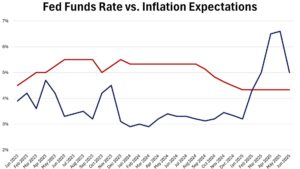Introduction:
At various times, there have been situations where economic news that was better than expected led to an immediate market decline, and where negative or disappointing economic news led to the market rising. This effect has been particularly pronounced this year. Ever wonder who’s benefiting from a bad economy and want to know what’s happening here? Let’s explore the issue.
Is the Market Rigged?:
At some point, everyone has heard accusations that the market is rigged in favor of the powerful. Unfortunately, there are some disturbing examples that lead people to believe these things. There were widespread rumors during the invasion of Iraq that Halliburton, a company tied to then Vice President Cheney, was benefiting from the war. On the other side of the aisle, many have noticed that Paul Pelosi, the husband of Speaker of the House, Nancy Pelosi, has a habit of making big profitable investments just before legislation that affects that industry is announced. It’s not hard to draw a line between Speaker Pelosi’s knowledge of upcoming policy changes and husband Pelosi’s investment timing.
In addition, the big investment banks can also be a source of misleading information as they tend to hand out “buy” ratings to any company that could be a future client. The research appears to be written to help the investor, but it’s really advertising for the underlying company in exchange for banking fees. We’ve pointed out many times that’s why independent research is so important.
These bad examples aside, for the most part, the US securities exchanges are relatively transparent, fair, and well-regulated. I believe the SEC makes an effort to try to regulate markets in a way that they believe is fair for both large institutions and individual investors. Most companies have a robust compliance department, and while fraud and misleading financials exist (as they do in every market around the world), in general, public companies in the US provide good disclosure on the state of the business at least four times a year.
So Then It’s All Fair?:
No. The market is being manipulated and has been for years. We’ve spent much of this year writing about the Federal Reserve and the late reaction to growing inflation by the Board of Governors who make decisions regarding interest rates. The fact that this institution exists at all is concerning. The price of interest is the price of risk. It’s the price of time and encourages people to spend money now, or to invest for future production and consumption. There’s no reason we should trust a quasi-governmental agency staffed by people who have never run a business with the responsibility of setting the rate of interest or controlling the amount of the US money supply.
In recent years, the Fed has blown up asset bubbles in the tech market (late ’90s/early ’00s) and the real estate market mid/late (’00s). The reason we’re seeing huge inflation right now with a CPI approaching double digits and real inflation almost double that number is because the Fed kept interest rates around 0% (or so) for over a decade, and accumulated $9 trillion of assets on its balance sheet. That “quantitative easing” means the Fed has increased the money supply by $9 trillion at a time when Covid-lockdowns and supply chain disruptions have reduced the amount of goods available. More money chasing fewer goods means higher inflation. And interest rates at or around zero means high valuations especially for tech stocks with high growth rates and expectations of profitability far in the future. Another way to describe this is an asset bubble.
What Does This Have to do With Economic Data?:
Right now, the Fed is raising interest rates quickly to lower demand and get inflation under control. Those higher rates are the primary reason that stock indexes are down on the year. The Fed will weigh two factors in deciding when to stop raising interest rates. The first is inflation. As long as inflation is still high, the Fed has an incentive to continue to raise the Fed Funds Rate. The second is the economy. Falling GDP, and increasing levels of unemployment could cause the Fed to pause or reverse interest rate increases.
As a result, strong economic news, while good for corporate earnings, gives the Fed cover to continue to raise rates. Weak economic news, means the Fed may be more cautious about raising rates and would bring us closer to the point where rates could start to come down again. While stocks should trade off of growth rates and earnings, they typically respond quickly to changes in interest rates by the Fed, and to changes in liquidity (quantitative easing or tightening).
That’s why the market has been rising on “bad” economic news (reduced probability of more rate increases), and declining on “good” economic news (increased probability of more rate increases). The fact that a small group of unelected insiders make these decisions which then have an outsized effect on market prices is why some would call the market “rigged”. And regarding the huge increase in the money supply, the Fed isn’t the only one to blame. Some large part of that increase in dollars outstanding is due to Congressional overspending. When Congress spends an extra $4 – $5 trillion, that gets added to official GDP statistics, but doesn’t result in additional production. Instead, that spending has to be monetized. This means that the extra spending just results in the creation of more dollars which leads to inflation and the reduction of spending power for everyone holding dollars.
The next time you see the market rise on “bad” economic news, you’ll understand the reason for it.



